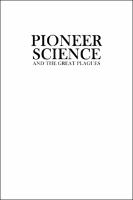Pioneer Scientists and the Great Animal Plagues
How Microbes, War, and Public Health Shaped Vet Medicine in the American Heartland
Author(s)
Cheville, Norman F.
Collection
Knowledge Unlatched (KU)Number
5533Language
EnglishAbstract
Pioneer Science and the Great Plagues covers the century when infectious plagues—anthrax, tuberculosis, tetanus, plague, smallpox, and polio—were conquered, and details the important role that veterinary scientists played. The narrative is driven by astonishing events that centered on animal disease: the influenza pandemic of 1872, discovery of the causes of anthrax and tuberculosis in the 1880s, conquest of Texas cattle fever and then yellow fever, German anthrax attacks on the United States during World War I, the tuberculin war of 1931, Japanese biological warfare in the 1940s, and today’s bioterror dangers. Veterinary science in the rural Midwest arose from agriculture, but in urban Philadelphia it came from medicine; similar differences occurred in Canada between Toronto and Montreal. As land-grant colleges were established after the American Civil War, individual states followed divergent pathways in supporting veterinary science. Some employed a trade school curriculum that taught agriculturalists to empirically treat animal diseases and others emphasized a curriculum tied to science. This pattern continued for a century, but today some institutions have moved back to the trade school philosophy. Avoiding lessons of the 1910 Flexner Report on medical education reform, university-associated veterinary schools are being approved that do not have control of their own veterinary hospitals, diagnostic laboratories, and research institutes—components that are critical for training students in science. Underlying this change were twin idiosyncrasies of culture—disbelief in science and distrust of government—that spawned scientology, creationism, anti-vaccination movements, and other anti-science scams. As new infectious plagues continue to arise, Pioneer Science and the Great Plagues details the strategies we learned defeating plagues from 1860 to 1960—and the essential role veterinary science played. To defeat the plagues of today it is essential we avoid the digital cocoon of disbelief in science and cultural stasis now threatening progress.
Keywords
Medical; Veterinary MedicineISBN
9781612497020Publisher
Purdue University PressPublisher website
http://www.thepress.purdue.edu/Publication date and place
2021Grantor
Imprint
Purdue University PressClassification
Veterinary medicine


 Download
Download